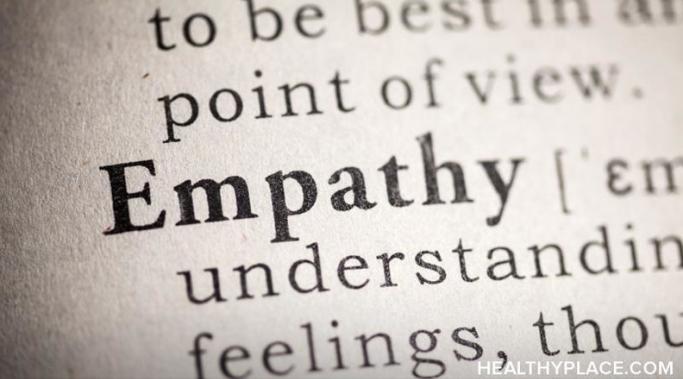While it seems hard to believe, some people want others to stay mentally ill and, indeed, sometimes even individuals themselves, choosing to maintain mental unwellness. You have the obvious example of people refusing medication and thus becoming very sick but there are other forces as well that can encourage a person to stay acutely, mentally ill.
Coping
When I speak to kids about my experience with bipolar disorder, really, I have a series of failures to explain. I tell them how treatment after treatment failed. I talk about drug failures, the failure of the vagus nerve stimulator and the failure of electroconvulsive therapy. I lot of my sentences have the word, “unfortunately,” in them.
And after one of my presentations last week, one person asked what I would say to someone who was going through a similar experience. I thought that was a very important question.
So here’s what I would say to someone who’s experiencing treatment failure.
I recently finished an 8-week mindfulness meditation course. I went into it not knowing why I was there, other than the fact that my doctor had recommended it. I went in not knowing what the outcome was supposed to be. When we were asked to write goals for the course, mine were blank. I had none. I really just wanted to see if there was any benefit to all this mindfulness meditation stuff.
Turns out, I believe that there is benefit in mindfulness meditation. And here’s some of what you might find in a course.
A reader recently contacted me and asked me about psychomotor agitation. Psychomotor agitation is actually a symptom of bipolar hypomania and bipolar mania (and depression) and yet few people know what this means. In fact, according to this study, it is poorly defined and measured even within the medical community. Psychomotor agitation is often translated into “restlessness,” which doesn’t seem overly descriptive to me.
So here’s my take on psychomotor agitation: how it feels and what we know about it.
I first started receiving psychiatric treatment when I was 20 years old. At that time, I was pretty separated and not very attached to my parents. Nevertheless, they and their opinions did have an impact on me. And when I told my mother I had bipolar disorder her reaction was akin to not believing me. She was entirely ignorant about mental illness (and to be fair, I had been too) and mental illness treatment.
She, naturally, wanted me to treat this problem with herbs and other nonsense. And in spite of the fact that I was detached from this woman, her lack of support affected me. At the time, all my energy was being used to fight bipolar disorder, and now I had to fight her too. It was kicking me while I was down. Way, way down. And while she didn’t see it that way, I can attest to the fact that it sure as heck felt that way.
But luckily for me, I was not under her care. Luckily, even though she eventually pressured me into trying out alternative nonsense, I still got the real, medical help I needed. Had I have been younger, this might not have been the case.
And unfortunately, some youth are in this position right now. Some youths feel they have a mental illness and are in the charge of their parents’. And some youths have even told their parents that only to be met with a wall of disbelief or told they’re “overly dramatic.”
I feel for these youths. They’re in a really tough spot. But there are things youths can do even if a parent doesn’t believe their son or daughter has a mental illness and refuses to support their desire to get help.
A get questions from all sorts of family members and friends of people with mental illnesses and, luckily, many of these people want to help. The trouble is people feel intimidated by a diagnosis of mental illness. They don’t even know where to start to help. This is completely normal. A probable lifetime diagnosis is enough to make anyone feel powerless.
But you are not powerless. If you love someone with a mental illness, there are many things you can do to help.
Recently I have been taking a mindfulness meditation course. This is pretty amazing seeing as I’ve always felt my brain was not still enough to meditate – not to mention, I’m pretty sure I don’t believe in all this new age stuff (although, technically, meditation is very, very old age stuff).
But I went anyway because mindfulness meditation has been shown to be beneficial for all sorts of mental illnesses (not surprisingly, particularly anxiety) and I try to be open to anything that may help-plus, bonus, no side effects.
And one of the things I had heard is that when you meditate you need to not think. Your mind is supposed to go blank. You become absent of thought.
But this turns out to be false.
Bipolar disorder can be a very debilitating illness, to the point where many people have hampered lives because of it. People may find that they can’t have families or jobs because of their disabling bipolar disorder.
And there is nothing wrong with these people. These people are just learning to live a different kind of life because life, unfairly, besought them with a severe mental illness.
But one of the problems these people often have is finding meaning in life. If you see everyone around you with a job or a family or other things your mental illness stops you from having, how do you handle it? How do you find meaning with a severe case of bipolar disorder?
We all have parts of our lives that we wish were different. One might wish her boyfriend hadn’t cheated on her. One might wish that his boss wasn’t so micromanaging. One might wish that she wasn’t bipolar. And so on. One might feel that these situations are unfair.
And sometimes when experiences arise around these situations, we react, not to the situation itself, but to how we wish the situation were and this gets in the way of making healthy choices.
It’s an interesting question, isn’t it? You have a life-altering illness that affects the very way your brain works. Do you actually have to tell people that? Do you have to tell people you have bipolar disorder?
Well, like with everything in life, it depends.
![MP900405644[1]](/sites/default/files/styles/blog_listing/public/uploads/2013/06/MP9004056441-1024x685.jpg?itok=sLTFbNTj)
![MP900390526[1]](/sites/default/files/styles/blog_listing/public/uploads/2013/05/MP9003905261.jpg?itok=8oVaR4Fn)

![MP900387479[1]](/sites/default/files/styles/blog_listing/public/uploads/2013/05/MP9003874791.jpg?itok=H3noVYZU)


![MC900438747[1]](/sites/default/files/styles/blog_listing/public/uploads/2013/04/MC9004387471.jpg?itok=emzSW1IQ)


![MP900177900[1]](/sites/default/files/styles/blog_listing/public/uploads/2013/03/MP9001779001.jpg?itok=4-Nio57P)